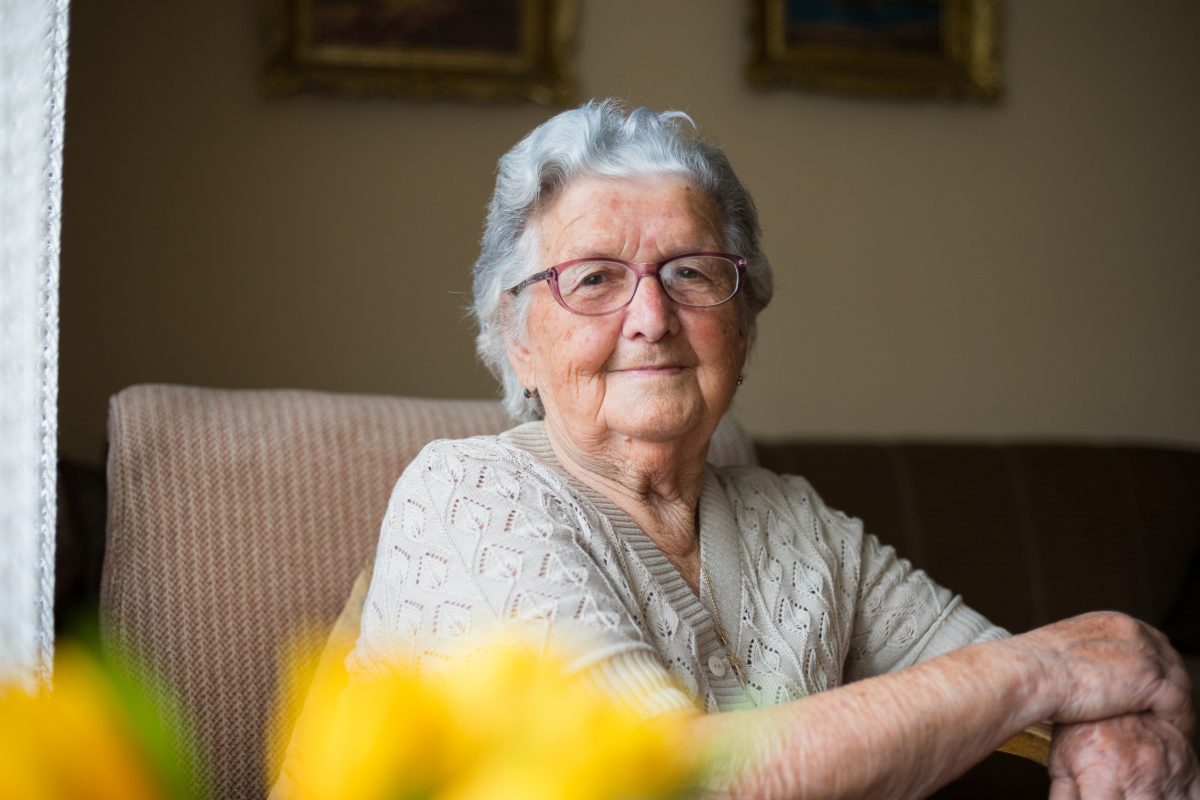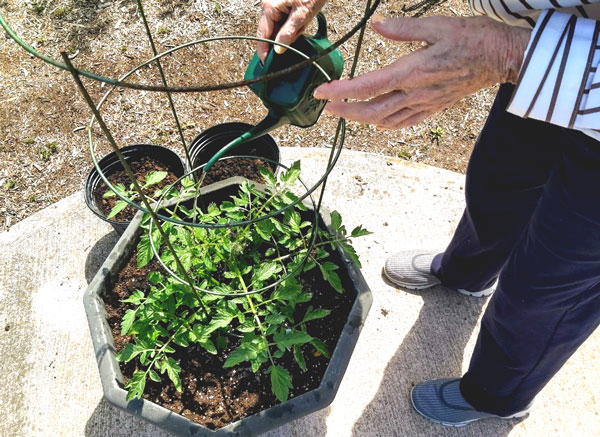When the opportunity to volunteer at Highview Residences came up, Joanne Hammerton saw it as a perfect fit.
“My mother had dementia,” she explains. “I was recently retired. I had the time, and I could use my experience.”
In addition to her personal experience with her mom, Joanne had relevant professional experience from her years working on various research studies as an epidemiologist in Western University’s Faculty of Nursing, mostly around women who had left an abusive partner. She thought volunteering would help to bring some meaning and positivity to the journey she had been on with her mom.
She recognized that volunteering at the retirement home where her mom had lived from March 2020 until her recent death would have been emotionally difficult. Once she’d given herself time to heal a little bit, she began volunteering at Highview London.
“It was sad when I would go and visit my mom, and she wasn’t who I knew her to be anymore,” Joanne says. “But I’m entering people’s lives at Highview at a different point, where I don’t know them in any other way. And so, there isn’t that same sense of loss for me as with my mom. I’m just meeting up with people as they are now and trying to hold space for them.”
I Just Try To Make It a Fun Time
One of the first activities Joanne got involved with at Highview was the Salon Social. For many of the residents who attend on Tuesday mornings, it’s a familiar activity that keeps them socially active.
Joanne explains it this way: “My mom was of that era where she would go to the hair salon once a week, or once every other week, and get her set. She would see the same people at the salon because they would all have their appointments around the same time. And it was just such a good social time for her even as she became confused. She looked forward to those salon visits.”
When Highview’s activation coordinator asked her whether she’d like to be part of it, Joanne laughingly said, “Are you kidding? This is my dream come true!”
That’s because, as a little girl, she always had a doll’s practice head with hair that she styled. And as a mother, she always did her daughter’s hair.
Joanne says that Highview’s salon looks like “a real little salon”, but she hastens to add that she’s not a licensed hairstylist. Yes, she’ll curl hair with a curling iron, but what she really focuses on is social interactions.
“I just try to make it a fun time.” She says she plays music on her phone that she knows each resident will like and visits with the women who come to the salon. “We just talk. I’m sure my role will evolve into more, but for right now, that’s where we’re at. And I’m good with that. Because this is a great way for me to get to know people and feel comfortable with them and vice versa.”
Any Point Of Connection Is What I’m Aiming For
When Joanne doesn’t have any “customers”, she wanders out of the salon and mingles with people in the family room.
“If there are some residents who are watching a movie, I’ll sit down, ask them what they’re watching, and get into a conversation with them. Or sometimes people are working on puzzles, and I’ll sit down and ask if I can work on a puzzle with them. Any point of connection is what I’m aiming for. That’s what I’m there for.”
She sometimes also helps feed residents who need the assistance. “I try to have a little bit of a conversation while I’m doing that, to make it more of a normal mealtime, rather than something to just get through.”
Not all residents are able to verbally express their thanks, but that doesn’t matter. There’s one resident who’s never said anything to Joanne. “But I can see the appreciation just through her eyes. We have this connection. It’s such a good feeling to know that you’re serving someone in that way.”
Appreciating The Little Things
She says that spending time with people who are living with dementia has taught her so much: about just living in the moment and about appreciating the little things.
“It brings me joy to form connections and see residents enjoying the small pleasures of life. Even when I sit with someone and help to feed them.”
And should she ever run into an issue, Joanne knows that someone on staff at Highview will be there to support her. “I always feel like the doors of communication are open.”
Hayley Gignac, Highview London’s General Manager says, “Having Joanne here is like a burst of sunshine, every time. She clearly loves the residents, and they really enjoy what she’s doing with them. We love all our volunteers and are so thankful for the extra time they spend with our residents.”
A Warm And Inviting Atmosphere
Joanne remembers the first time she walked into Highview. “I just felt like it was such a warm and inviting atmosphere. It truly did feel like a home. Especially the way the whole kitchen and dining room are set up, unlike anything I had seen before anywhere else.”
To sum up, she says that she feels like people really enjoy her being there.
“If someone is thinking about a volunteer position, I would say that it’s so worth it. And yes, it’s sometimes hard to see people struggle, but I think that if you just accept them where they’re at, there can be so much joy in it.”
Highview Residences is a specialized care home for people with dementia. This secure home is purpose-built with a unique design that is just like your home only bigger: private bedroom and bathroom, small dining room, walking gardens and truly person-centred care supports our residents to the end of life: Each Moment | By Design | With Love.
And Highview loves our volunteers! If you’re interested in learning more about volunteering at Highview please email our Coordinator of Activation:
Kitchener – Madison: recreationkw@highviewres.com
London – Heidee: recreationldn@highviewres.com


 Families often notice a sense of ease in their loved ones after moving to Highview, making a meaningful difference not just for the couple, but for the entire family. “It’s not just about being in the same place — it’s about the sense of security that comes with being together,” says Joy Birch, Chief Operating Officer.
Families often notice a sense of ease in their loved ones after moving to Highview, making a meaningful difference not just for the couple, but for the entire family. “It’s not just about being in the same place — it’s about the sense of security that comes with being together,” says Joy Birch, Chief Operating Officer.




